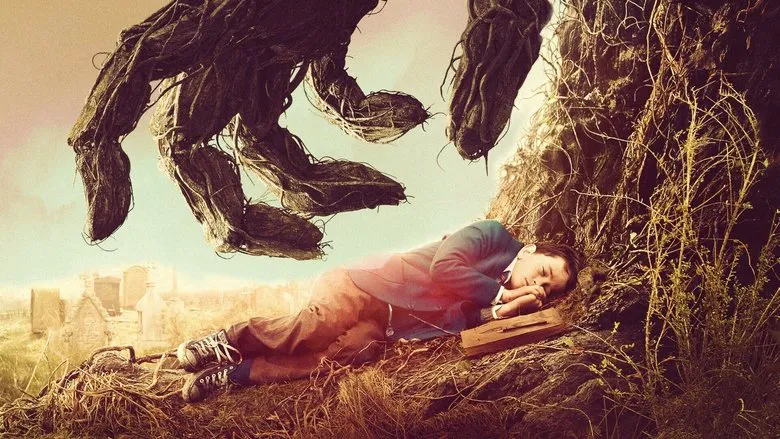A Monster Calls: A Thoughtful but Somber Tale
A “smart” film, but perhaps too bleak and not engaging enough, A Monster Calls is a cautionary tale for children about life and death.
Conor (Lewis MacDougall), a teenager, is deeply unhappy. His mother (Felicity Jones) is dying, his father lives in America with a new family, his stern grandmother (Sigourney Weaver) struggles to show affection, and he’s inexplicably bullied at school. One night, a colossal, tree-like monster appears to Conor in a dream. It promises to tell him three stories, demanding that Conor tell his own story in return. The boy is reluctant to listen to the monster’s parables, but the monster leaves him no choice.

The film is based on the novel of the same name by British young adult author Patrick Ness.
Books, films, and comics for teenagers – especially for teenage boys – often transport them to other worlds governed by a sense of childhood justice. In these worlds, good triumphs over evil, valiant heroes defeat hordes of villains, and young children prove to be more significant than adults. Such works are sometimes criticized for escapism, but is it truly wrong to offer teenagers a pleasant escape?

Although Sigourney Weaver was born and lives in the United States, a British accent is not foreign to her. Her mother, English actress Elizabeth Inglis, spoke with one.
If you disagree with the idea of escapism, then A Monster Calls, directed by Spanish filmmaker Juan Antonio Bayona, might appeal to you. While the film contains a touch of fantastical mysticism, it is by no means an escapist fantasy, a variation on The NeverEnding Story, or even Pan’s Labyrinth. The monster comes to Conor’s dreams not to transport him to another reality, but to force him to understand how unfair, complex, and ambiguous the real world is. In essence, the monster conducts psychotherapy sessions to help Conor accept his mother’s death, come to terms with his father’s and grandmother’s shortcomings, avoid drowning in grief and fear… and deal with his school bully.

Understandably, there’s little that’s “enjoyable” about this. A Monster Calls is reminiscent of cod liver oil, once force-fed to Soviet children, and spinach, which tormented young Americans. It’s hard to imagine a child willingly watching a film where the protagonist’s mother dies slowly and painfully, and where the boy’s monster doesn’t comfort him but “builds him up” to properly orient his soul. It’s a useful film because it explains important truths that can help a child (and an adult) in life. However, its moralizing dominates its entertainment value, and “fun” is practically absent in A Monster Calls.

However, the film can still entertain, but not children. It’s more for adults who enjoy sad, tear-jerking stories about young sufferers. Although Lewis MacDougall is new to acting, he suffers convincingly, and he is well-supported by the stars surrounding him. Western critics, however, were not impressed by American Weaver’s British accent (the film is set in the British Isles), but her ability or inability to imitate the English is irrelevant to us.
Visuals and Animation
I also want to note the stylish, dark visuals of A Monster Calls and the drawn animated inserts illustrating the Monster’s stories. Their independent artistic value is small, but they perform their function admirably within the context of the film. The same can be said about the computer graphics used to create the Monster. It’s not the most memorable friendly creature in the history of children’s cinema, but in A Monster Calls, it’s not the Monster that should be remembered, but the complex thoughts it conveys to the young hero and his peers in the audience.